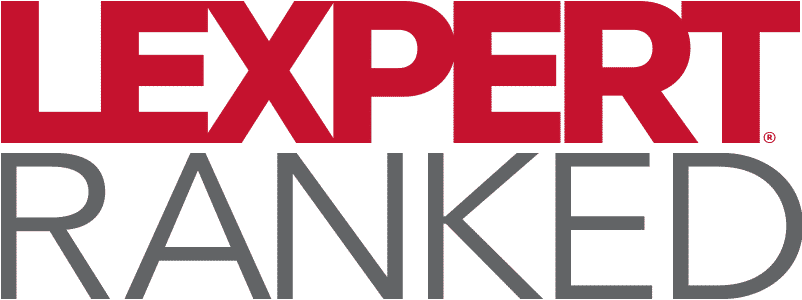

Derivative Instruments work is generally understood to incorporate both the private and public derivative markets. Derivative lawyers may work in either or both of these markets. The best derivative lawyers will work in both and have clear understanding of the private and public markets.
On the private side, legal work will cover preparation of documentation for negotiation and assisting in the development of a wide range of products including interest rate, basis and cross-currency swaps; equity index and commodity swaps and forwards; over-the-counter options on government bonds (domestic and foreign), commodities, equity indices and other underlying interests; warrant products; caps, collars, floors, swaptions; forward rate agreements; foreign exchange contracts; and structured notes and hybrid securities.
On the public side of the derivatives market activities will include, in addition to the work noted above, a presentation of issuers or agents in public derivative product offerings and preparation of documentation for and assisting in the development of a variety of different financings involving the use of derivative products, including asset and inventory securitizations and oil, gold and other commodity monetization programs.
Derivatives are financial instruments or contracts, set between two or more parties, which derive their values or worth from the performance of an underlying asset (or basic asset or specific asses). In addition, a derivatives’ value may also depend upon group of assets, or benchmarks.
These underlying assets, sometimes called an “underlying” for brevity, can be:
As such, fluctuations in these underlying assets are where a price of a derivative is determined or derived from.
Derivative lawyers, as will be discussed below, are acquainted with the different uses along with its different types and methods of trading. This elaborate system is known to them to ensure clients that going into a specific derivative contract benefits their companies or corporations well.
Derivatives are used by companies and corporations in different ways.
In buying or trading derivatives, it can be either through over-the-counter (or OTCs) or through an exchange. OTC trading means that derivative contracts, or any others like stocks or bonds, are done in an unregulated manner, or outside of the centralized exchange. This is usually done through a broker or dealer, and is resorted to by companies or corporations that do not meet the requirements to be listed on a standard market exchange. On the other hand, when trading is done through the exchange, it means that it is traded through standardized contracts and are regulated by agencies concerned with such transactions.
In Canada, securities – including derivatives – are regulated by the different securities regulating commissions or agencies of the respective provinces or territories. At the federal level, there is no single government entity regulating securities, however, the different provincial securities commissions or regulators formed together the Canadian Securities Administrators (or CSA).
Derivatives can be in different types or forms, according to its three primary uses and the method it is traded.
Options or an option is the simplest form of a derivative contract. In an Option, the buyer pays the seller and acquires the rights over an underlying asset, and the buyer may now either buy or sell the said underlying asset at a fixed price, on or before the specified future time in the contract. Here, investors “bet” on the price movement of the underlying asset. Notably, the buyer only acquires the rights over the said asset, but is not obligated to buy or sell it.
A forward, or forward contract, is an OTC derivative contract between two parties, wherein the buyer binds themself to purchase an underlying asset from a seller at a specific future time, but at a price agreed upon prior to or during the signing of the said derivative contract.
This derivate contract is in the nature of bilateral contracts – hence, it must be agreed upon by both parties, subject to their mutual terms on the size, expiration date, asset type and quality, among others. In addition, since forwards or forward contracts are OTCs, its price is not available to the public domain, and is generally unregulated by governing agencies, putting the parties at their own risk.
Futures or future contracts, on the other hand, are contracts traded through exchange, where a buyer agrees to buy financial instruments – or derivatives for this purpose – or other commodities or assets at a price agreed upon by the parties, but subject to delivery at specified future time.
This is similar to Forwards or Forward Contracts, but differs in the method since Futures are exchange-traded contracts, hence, they are regulated by the government. In addition, as an effect of it being regulated, there is a daily balancing of gains and losses through the clearinghouse.
Swaps, or a swap, is another OTC derivative contract, wherein two parties “swap” or exchange a series of cash flows or liabilities from two different financial instruments or derivatives. Specifically, one party swaps with another party, where the latter would pay the former by the performance of an underlying asset; and such situation is reversed but involves a different underlying asset.
There are different types of Swaps, such as:
Given the different types or forms of derivative contracts, each having their own advantage and applicability, derivate lawyers are best consulted with before pursuing a specific derivative contract.
Derivative lawyers assist clients in the preparation of the derivative contracts itself, or in the interpretation thereof if such is prepared by another party. Should there be unfavourable provisions in the contract, derivative lawyers negotiate with the other party to come up with a mutually acceptable contract. Along with this line, derivative lawyers must also have a good understanding of the current laws and regulations applicable for derivative contracts, especially if the dealing with exchange-traded contracts.
Litigations, arbitrations, or mediations are also part of the work of derivative lawyers. Prior to going to court, parties might want to engage in mediation or arbitration first, to privately resolve issues – or alleged violations – arising from their rights and obligations based on the derivative contract. If all else fails, and a court action is deemed proper, derivative lawyers turn to procedural law to represent the best interest of their clients.
Clients of derivate lawyers may either be public or private corporations, such as banks, brokers or agencies, insurance companies, investment companies, among others.
Interested in entering a derivative contract? Consult with the best derivative lawyers as ranked by Lexpert by scrolling down.

